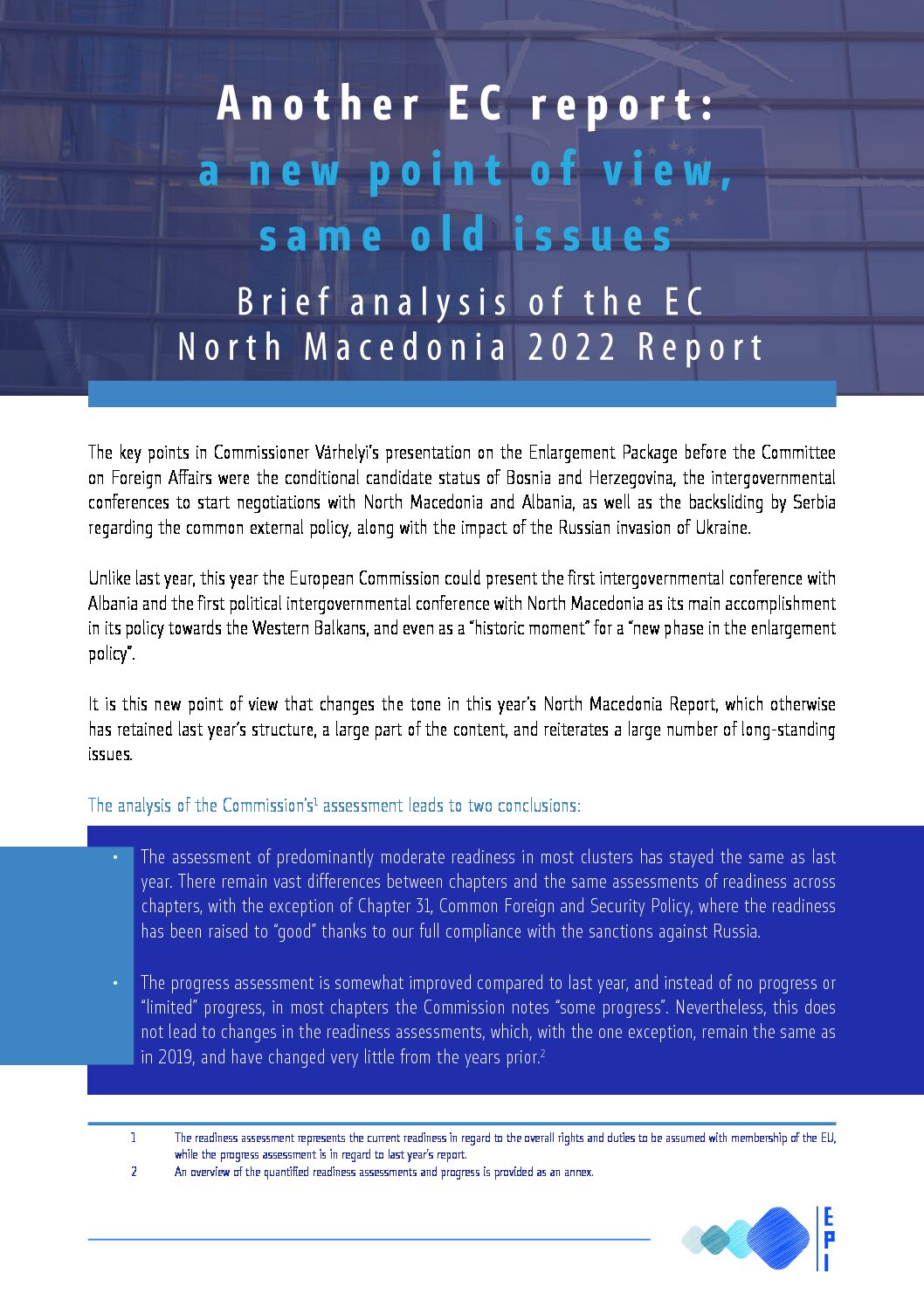Brief analysis of the EC North Macedonia 2022 Report
The key points in Commissioner Várhelyi’s presentation on the Enlargement Package before the Committee on Foreign Affairs were the conditional candidate status of Bosnia and Herzegovina, the intergovernmental conferences to start negotiations with North Macedonia and Albania, as well as the backsliding by Serbia regarding the common external policy, along with the impact of the Russian invasion of Ukraine.
Unlike last year, this year the European Commission could present the first intergovernmental conference with Albania and the first political intergovernmental conference with North Macedonia as its main accomplishment in its policy towards the Western Balkans, and even as a “historic moment” for a “new phase in the enlargement policy”.
It is this new point of view that changes the tone in this year’s North Macedonia Report, which otherwise has retained last year’s structure, a large part of the content, and reiterates a large number of long-standing issues.
The analysis of the Commission’s[1] assessment leads to two conclusions:
- The assessment of predominantly moderate readiness in most clusters has stayed the same as last year. There remain vast differences between chapters and the same assessments of readiness across chapters, with the exception of Chapter 31, Common Foreign and Security Policy, where the readiness has been raised to “good” thanks to our full compliance with the sanctions against Russia.
- The progress assessment is somewhat improved compared to last year, and instead of no progress or “limited” progress, in most chapters the Commission notes “some progress”. Nevertheless, this does not lead to changes in the readiness assessments, which, with the one exception, remain the same as in 2019, and have changed very little from the years prior.[2]
Therefore, our conclusion from last year remains, that this is a result of the long-term nature of the accession process, the continuous changes in the acquis, as well as the general lack of political support for the enlargement process inside the EU, rather than a result of this year’s change in rhetoric. Maintaining such an approach will fail to provide the impetus for reforms from the viewpoint of a candidate country.
[1] The readiness assessment represents the current readiness in regard to the overall rights and duties to be assumed with membership of the EU, while the progress assessment is in regard to last year’s report.
[2] An overview of the quantified readiness assessments and progress is provided as an annex.

